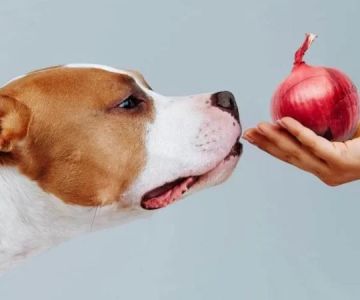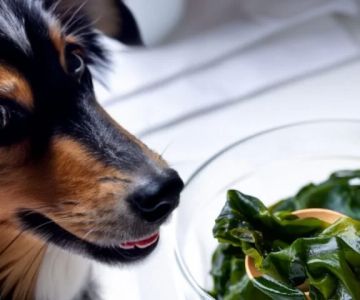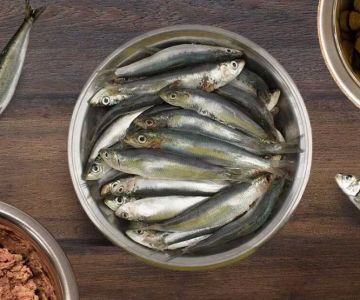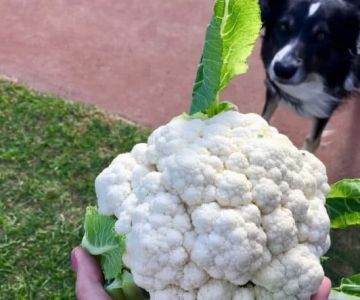- 1 - can-dogs-eat-apple-seeds-the-basic-answer
- 2 - understanding-why-apple-seeds-can-be-dangerous
- 3 - real-life-case-of-apple-seed-poisoning
- 4 - how-much-is-too-much-for-your-dog
- 5 - safe-ways-to-feed-apples-to-your-dog
- 6 - what-to-do-if-your-dog-eats-apple-seeds
- 7 - professional-advice-from-hidden-brook-veterinary
- 8 - healthy-fruit-alternatives-for-dogs
Can Dogs Eat Apple Seeds? The Basic Answer
The short answer is no—dogs should not eat apple seeds. While the flesh of the apple is healthy and packed with vitamins A and C, the seeds contain a substance that can be toxic to dogs when consumed in large enough quantities. Many dog owners mistakenly believe that tossing a whole apple core is harmless, but the seeds inside tell a different story. Understanding the risks is essential for keeping your dog safe while still allowing them to enjoy this popular fruit in moderation.
It’s worth noting that the danger usually comes from repeated or large exposures, not a single seed. However, prevention is always better than cure when it comes to your dog’s health.
Understanding Why Apple Seeds Can Be Dangerous
Apple seeds contain a compound called amygdalin, which can release cyanide when metabolized. While a human’s body size and metabolism can often handle trace amounts without harm, a dog’s smaller size makes them more vulnerable. In high enough doses, cyanide can interfere with oxygen delivery to the body’s cells, potentially leading to serious health issues.
The apple’s flesh and skin, on the other hand, are perfectly safe when prepared properly. They can support your dog’s immune system, promote dental health, and provide a refreshing treat. The real risk lies in those tiny seeds hidden in the core.
Real-Life Case of Apple Seed Poisoning
Consider Max, a curious Labrador who got into a compost bin filled with discarded apple cores. Within hours, he began showing signs of lethargy, difficulty breathing, and dilated pupils. His owner rushed him to a veterinary clinic, where it was determined he had ingested dozens of seeds. Thankfully, prompt treatment saved his life, but it was a sobering reminder that natural does not always mean safe.
Cases like Max’s are rare but preventable. Knowing what your dog can and cannot eat is a critical part of responsible pet ownership.
How Much Is Too Much for Your Dog?
Accidentally swallowing one or two seeds is unlikely to cause harm in most dogs. The problem arises with repeated exposure or when a dog eats a large number of seeds at once. The size, weight, and overall health of the dog play a role in how their body processes toxins. Small breeds like Chihuahuas or Pomeranians are at higher risk from smaller amounts than larger breeds like German Shepherds.
Because there is no exact “safe” seed count that applies to every dog, the safest approach is to remove all seeds before feeding apples.
Safe Ways to Feed Apples to Your Dog
When prepared correctly, apples can be a nutritious snack. Always wash the fruit thoroughly to remove pesticides, cut it into bite-sized pieces, and remove both the core and seeds. You can serve fresh apple slices as training rewards or mix them into your dog’s kibble for added flavor. Frozen apple chunks also make a great summer treat, soothing for teething puppies or cooling on hot days.
Remember to introduce apples slowly if your dog has never had them before, as some dogs can be sensitive to dietary changes.
What to Do If Your Dog Eats Apple Seeds
If your dog accidentally eats apple seeds, observe them closely for symptoms such as rapid breathing, drooling, vomiting, or lethargy. While mild cases might not require medical intervention, any concerning symptoms should prompt an immediate call to your veterinarian. Quick action can make all the difference in preventing serious complications.
Having your vet’s emergency number handy and knowing where the nearest animal hospital is located can save valuable time in critical situations.
Professional Advice from Hidden Brook Veterinary
Hidden Brook Veterinary emphasizes that even though apple seeds are a small part of the fruit, they should not be ignored. Their team recommends treating apple seeds as you would any other toxic food item—securely disposing of them and avoiding situations where your dog might have access. They also remind owners that “natural” does not automatically mean “safe,” and it’s always better to double-check before introducing new foods to your dog’s diet.
Professional guidance is especially important for dogs with existing health conditions, as they may be more susceptible to toxins.
Healthy Fruit Alternatives for Dogs
If you want to offer variety, several other fruits are safe and beneficial for dogs when served properly. Blueberries, watermelon (seedless), bananas, and strawberries are all great options that can be served fresh or frozen. These alternatives not only add flavor but also provide different nutritional benefits, helping keep your dog’s diet balanced and interesting.
Whichever fruit you choose, moderation and preparation are key. Always remove inedible parts, and remember that treats—no matter how healthy—should make up no more than 10% of your dog’s daily caloric intake.











